MercoPress. South Atlantic News Agency
Tag: Latin American
-
Tuesday, March 20th 2018 - 10:08 UTC
“Progressive” governments wide spread corruption in the region threatens the political system
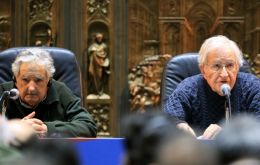
The wave of corruption that has spread throughout Latin America has shaken regional institutions, disillusioned populations and should define the electoral cycle that many Latin American nations are going through.
-
Tuesday, January 2nd 2018 - 06:20 UTC
Latin American poverty and extreme poverty rose in 2015/16 following a decade of decline
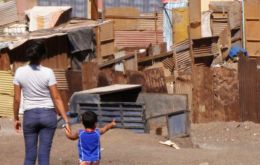
Poverty and extreme poverty levels rose in Latin America as a regional average in 2015 and 2016, after more than a decade of declines in the majority of countries, while in 2017 they are expected to hold steady, the Economic Commission for Latin America and the Caribbean (ECLAC) said.
-
Thursday, November 11th 2010 - 22:04 UTC
Latin American leaders at G-20 call for responsibility from rich countries
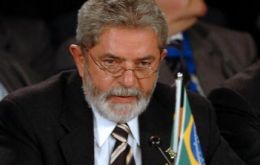
Leaders from Brazil, Mexico and Argentina in the framework of the G-20 summit in Korea called on rich countries for a commitment to end the “currencies war” and ensure balanced growth out of the current crisis.
-
Wednesday, September 15th 2010 - 00:27 UTC
Ending the commodities ‘curse’

By Augusto de la Torre (*) - In 1672, Potosí, Bolivia, was one of the largest and richest cities in the world. Located at the base of Cerro Rico, Potosi was a hotbed of Spanish silver mining, the operations of which were so prolific; a Potosi became synonymous for great riches.
-
Monday, July 19th 2010 - 04:24 UTC
Positive sustained growth prospects for Latin America in 2010, forecasts IMF
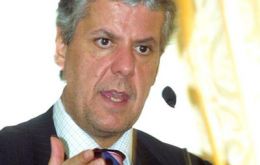
The Latin American economy could grow by as much as 5% this year, more strongly than previously expected (4%), driven by Brazil's vigorous expansion, according to a senior International Monetary Fund official.
-
Tuesday, May 4th 2010 - 19:20 UTC
IMF Says Latam Recovering Faster than Expected but With “Bubble” Risks
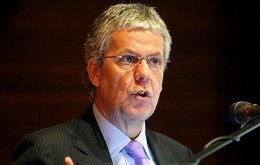
The recovery in Latin America and the Caribbean is advancing faster than anticipated but at different speeds across countries, the International Monetary Fund (IMF) said in its latest Regional Economic Outlook-Western Hemisphere report, which was launched Tuesday in Montevideo, Uruguay.
-
Tuesday, May 4th 2010 - 18:58 UTC
Kirchner Gets UNASUR Job; Mujica Admits “Political Cost” but Privileges Unity

Former Argentine president Nestor Kirchner was sworn Tuesday as Secretary General of the Union of South American Nations, UNASUR, following the consensus reached among the twelve country members overcoming differences of previous meetings.
